

Trivium Packaging is a proud member of the UK Aerosol Recycling Initiative, a working group established by Alupro (the aluminium packaging recycling organisation) in September 2022 with the clear ambition of increasing aerosol recycling rates across the UK.
The group has already undertaken extensive research to define a baseline recycling rate for aluminium aerosol containers, launched a new consumer engagement campaign for local authorities, and pioneered an industry roadmap to guide the changes required to increase national aerosol recycling rates.
With activity accelerating and a number of exciting projects set to be unveiled within the coming weeks, our Sustainable Partnership & Ecosystem Director, Alice Bazzano, gave us the latest insight from one of the industry’s most exciting projects.
Can you give us a quick introduction to Trivium Packaging and explain how the business fits into the aerosol packaging supply chain?
Trivium Packaging manufactures a wide range of metal packaging items for brands around the world. We shape the future of packaging to ensure a better planet for everyone – today and for generations to come. With nearly 7,500 employees in more than 60 locations around the globe, we believe that the products we produce are of pivotal importance as a vessel of protection and preservation for the products they contain.
As a manufacturer, Trivium operates at the centre of the supply chain. We rely on suppliers who provide raw materials and machinery so that we can produce our products for our customers. We do all this with the planet in mind, making sure any scrap materials are properly recycled and reused. What’s more, we aim to have all our manufacturing plants running on 100% renewable electricity by 2030. Our plants in the United Kingdom have already met that target.
Once products leave our facilities, they are sent to our customers to be filled, capped and sold to consumers. Because metal is infinitely recyclable and highly valued, the whole process is entirely circular, meaning that we may receive back recycled materials that were once produced by us, to be made into something new!
Why did you join the UK Aerosol Recycling Initiative? What other major industry players are involved?
A true sustainable future cannot be built by only one company. Therefore, businesses need to work together with value chain partners to create solutions that continuously improve environmental impact. Sustainability is at the heart of all we do, making us the natural partner for both up and downstream businesses aiming to achieve ambitious sustainability goals through our metal packaging solutions. We know from our Buying Green Report (consumer research that focuses on consumers' perceptions, values, and behaviors regarding sustainable packaging) that there are misconceptions about what is truly able to be recycled. What’s more, for many consumers, recycling can be confusing.
For all these reasons, we’ve partnered with the UK Aerosol Recycling Initiative and others around the world to help make sure that aerosols are actually being recycled and that precious materials are not being wasted. This can be as simple as educating consumers, or as complex as developing recycling capabilities where they previously haven’t existed. Every effort matters.
To date, what has been the single biggest output from the group? How will this help to increase aerosol packaging recycling rates across the UK?
This is a multi-year project and the biggest results will be seen in the future. Our goal is to increase the recycling rates of aerosols and that will be the metric of our success. Our roadmap includes several initiatives, including understanding the current baseline, as an essential requirement to have a crystal clear picture and be able to assess progress towards improving this figure.
One of the biggest challenges the initiative is facing seems to be a lack of data regarding aerosol recycling. Why is this? Is this holding back UK recycling as a whole?
Recycling data in general is often a year or two behind. There are several different reasons behind this, such as the fact that recycling capabilities and processes vary greatly. In some countries, this is by city/county – while in others by state/region/territory. When there is no central combined way of doing things, it makes data hard to come by.
The UK has made steady progress towards improving recycling rates over the past few years, especially when it comes to aluminium packaging. Why isn’t this the case for aerosols?
Like every other metal packaging format, aerosols can be infinitely recycled. However, their unique format and pressurization sometimes require special treatment in the recycling process. Additionally, consumers’ perceptions and behaviours might negatively affect recycling rates. Therefore, education plays a pivotal role in increasing circularity and ensuring the preservation of valuable resources. In our recent white paper, Aerosol Cans in Europe: A Story of Infinite Recyclability, we provided a comprehensive yet concise perspective on the recycling of aerosols in Europe, dispelling any misconceptions and giving practical guidelines for overcoming potential challenges.
Could you explain the thinking behind developing and launching a roadmap? Is it achievable with the right support?
When addressing complex, long-term challenges, it becomes crucial to establish a strategic framework that can guide us toward valuable solutions. The roadmap has been instrumental in illuminating the significance, attainability, required resources, and interconnections among potential initiatives, all while aiding in their prioritization. Serving as both a foundational stepping stone and a guiding light, the roadmap directs our efforts toward a future where consumers can confidently and effectively recycle their aerosol cans.
What is the group working on currently? What is the industry likely to see within the next few months?
We have a range of initiatives in progress, with a specific emphasis on prioritising the establishment of a solid baseline and effective consumer communication. The way we convey our message to consumers, including on-pack labeling, holds significant sway over the ultimate outcomes we achieve. Naturally, we’re also dedicated to closely monitoring evolving regulations and the implications that measures such as Extended Producer Responsibility (EPR) and deposit return schemes will impose on the aerosol industry. Though there is still much to be done, we are eagerly anticipating the unfolding of these impactful initiatives.














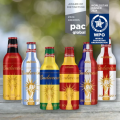

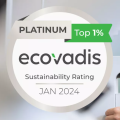
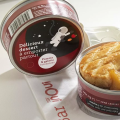
.png)

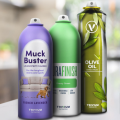
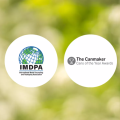

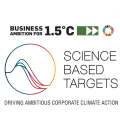


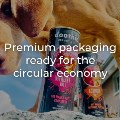
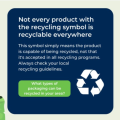
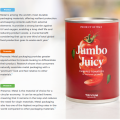
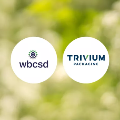
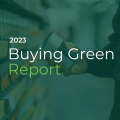
.png)

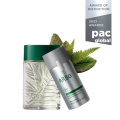
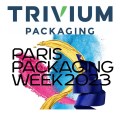




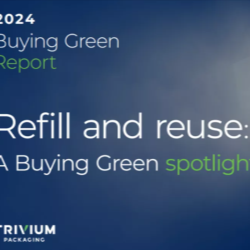



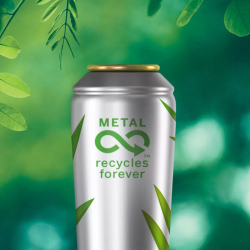
.png)

